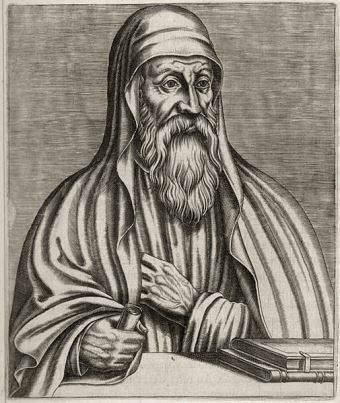CHURCH HISTORY
Church Foundations
Origen
By Brandon Markette

When Origen was 18, the Bishop of Alexandria appointed him to teach the Christian faith to new converts in Alexandria. The challenge of teaching new Christians drove Origen to continue his studies and begin his prolific writing career. Known for his ascetic lifestyle (he slept on the floor, abstained for meat and wine, owned little personal property, and accepted little remuneration for his work), Origen traveled throughout the Roman Empire mediating disputes and presenting the gospel.
One of Origen's greatest contributions to Christianity is his On First Principles. Written while living in Alexandria, On First Principles is one of the earliest systematic theologies in the church. In this seminal work, Origen addresses the doctrines of God, Man, the Fall, Ethics, Scripture, and rules for interpreting Scripture, among other topics. In this work Origen presents what might be called a philosophy of Christianity, a biblical way of viewing and understanding the world.
As a scholar, Origen was driven to return to Scripture passages and think them through himself. For this reason, Origen mastered the languages of the Bible, Greek and Hebrew, as well as Latin. This drive also led him on a 28-year work to compile a reliable Old Testament text. The finished work, entitled Hexapla, brought together the Hebrew Old Testament, a Greek Transliteration, the Septuagint (a Greek translation), as well as the translations done by Aquila, Symmachus and Theodotion. While no complete manuscript of the Hexapla exists today, it represents the commitment to the accuracy of Scripture found among early churchmen. Moreover, the Hexapla is one of the great scholarly works of the early church.
While a keen scholar, much of Origen's writing revolved around answering challenges to the Christian faith. This writing also set the stage for Christian Apologists. Faced with the questions and challenges brought against the faith by the pagan community, Origen carefully and thoughtfully developed answers. It was his ability to answer Christianity's opponents that found Origen traveling around the Roman Empire, presenting the gospel, and answering the challenges brought against Christianity. Following that model, to this day the Church enjoys men and women who listen attentively to and answer carefully the concerns of the world.
Of course not all of Origen's life is exemplary. He disputed with the Bishop of Alexandria, resulting in his exile to Caesarea. Some of his positions were viewed as heresy because they clearly contradicted Scripture. In 250 AD, as a part of the Decian persecution, Origen was arrested by the Romans. Though they did not martyr him, the Romans tortured Origen horribly. This torture wrecked his health and four years later Origen passed to his eternal reward.
Despite his shortcomings, Origen provides us with some commendable patterns. His commitment to studying Scripture, thinking deeply about Scripture, and carefully defending the Christian faith are just three of his examples that modern Christians do well to follow.
Image: Origen by André Thévet; Public Domain
Tags: History-Apologetics | Ministry-Church
comments powered by Disqus
Published 5-23-2014

